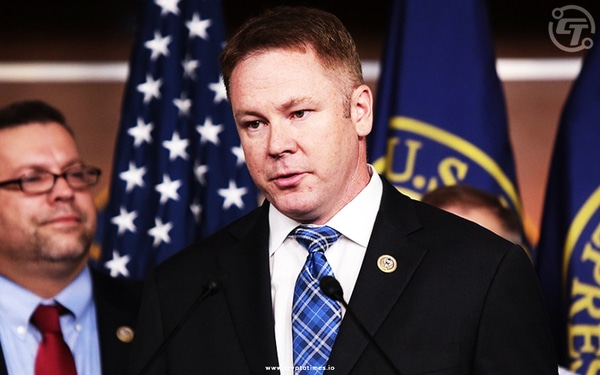In response to a job posting by the San Francisco Federal Reserve Bank for a “senior crypto architect” to work on a Central Bank Digital Currency (CBDC) project, Republican Representative Warren Davidson has taken a firm stance against the development of CBDCs.
Davidson accuses the Federal Reserve of “building the financial equivalent of the Death Star,” claiming that CBDCs corrupt money and turn it into an instrument of coercion and control, and adding: “Congress must swiftly ban then criminalize any effort to design, build, develop, test or establish a CBDC.”
The controversial Twitter post by Congressman Davidson on July 23rd has sparked a heated debate over the potential implementation of CBDCs in the United States. He calls for Congress to promptly ban and criminalize any efforts related to designing, building, developing, testing, or establishing a CBDC.
Davidson argues that money should be a stable store of value and should not be programmable by a central authority, fearing the loss of financial privacy and personal freedom.
The Federal Reserve has been actively researching the technology behind a digital dollar, but no concrete decisions have been made about its issuance.
Nevertheless, the mere possibility of a digital version of the U.S. dollar has raised concerns and is expected to be a prominent topic in the upcoming presidential election.
Governor Ron DeSantis of Florida, a U.S. presidential candidate, has also expressed his opposition to a central bank digital currency. He promises to “nix any central bank digital currency” if he assumes the presidency. In fact, Governor DeSantis has already taken action by signing a bill restricting the use of CBDCs within the state of Florida.
Another Republican, Tom Emmer also proposes a bill to prevent Fed from issuing CBDC in January 2022. Emmer, who has long advocated for financial privacy, believes that a programmable CBDC could be easily weaponized as a spying tool to suppress dissent and unpopular political activities.
In an effort to protect Americans’ right to financial privacy, Emmer introduced the CBDC Anti-Surveillance State Act, which aims to prevent unelected bureaucrats in Washington, DC from gaining undue control over citizens’ financial transactions.
Texas Senator Ted Cruz has also supported the cause by introducing his own CBDC-blocking bill.As the debate over the potential adoption of CBDCs intensifies, it remains uncertain how Congress and the Federal Reserve will navigate these contentious waters.
Also Read: San Francisco Fed Hiring Crypto Architect for CBDC Project






